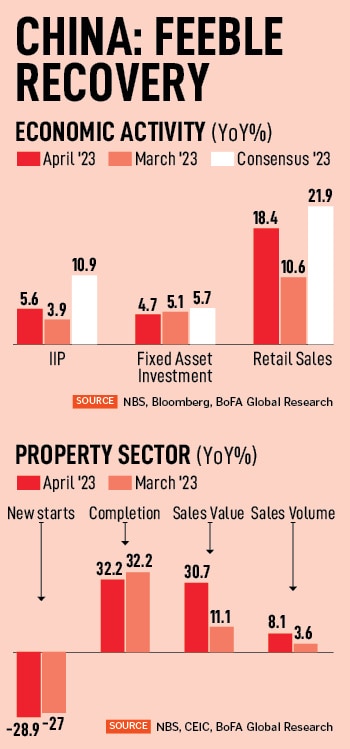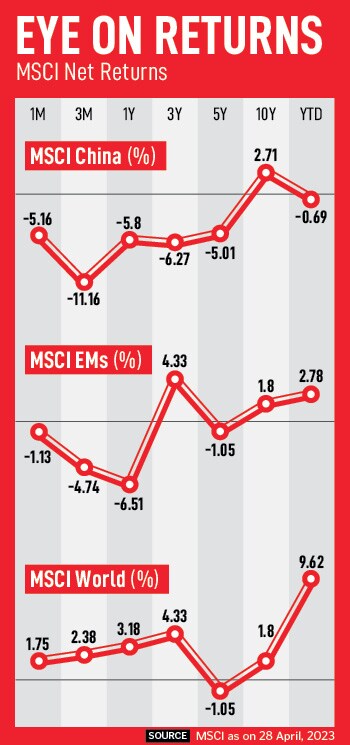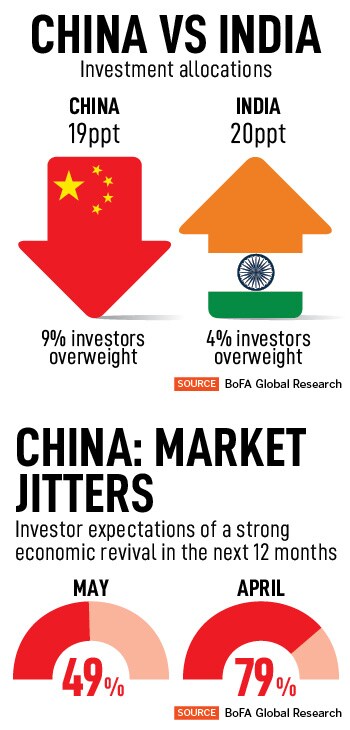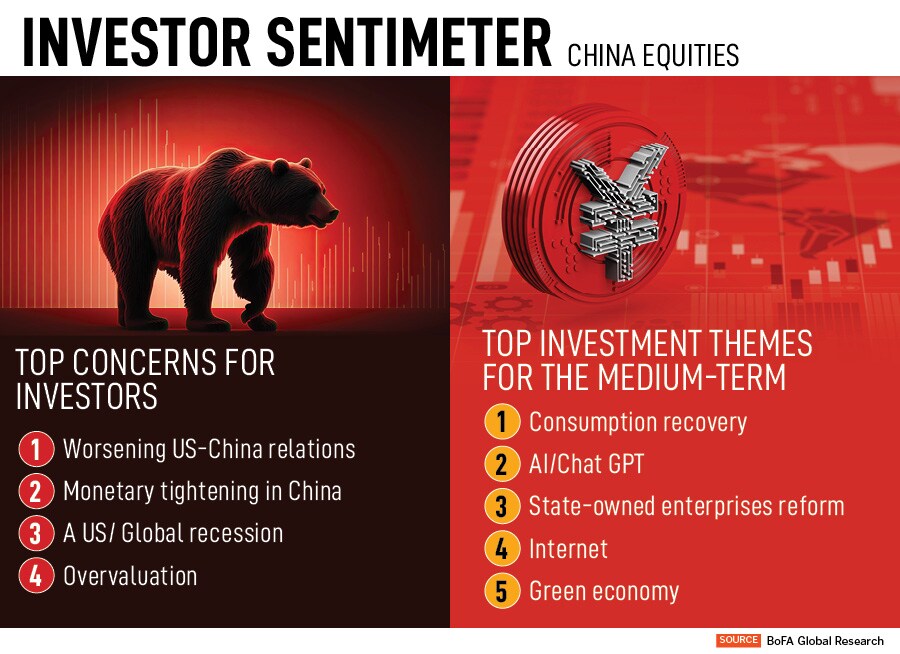
The curious case of China's confidence trap
Investors, sceptical of China's macroeconomic data as corporate guidance remains tepid and stock returns disappointing, are looking to shift allocations to India for higher long-term returns
 As of last week, China stocks had lost most of the gains since January and the Shenzhen Component Index had shed 9.5 percent from its peak in early February.
Image: Getty Images
As of last week, China stocks had lost most of the gains since January and the Shenzhen Component Index had shed 9.5 percent from its peak in early February.
Image: Getty Images
The biggest global investment theme of the year seems to have gone sour. When China reopened its economy, six months ago, after nearly 1,000 days of lockdowns due to draconian zero-Covid policies, investors widely expected the year of the rabbit to mark a strong revival of the world’s largest economic juggernaut. Broadly, the underlying thesis was that excess savings to the tune of RMB 7 trillion accrued over the past three years would boost China’s consumption levels to the pre-pandemic level of 8 percent and GDP growth of 5 percent in CY23.
But the mood of investors has quickly changed from “unabashedly bullish” to “fatigued scepticism” as they try to piece the puzzling disconnect between the strong headline economic data and the dismal performance of China stocks. In fact, many investors are doubtful if China’s recovery has legs and if they can meaningfully profit from the reopening theme in the medium term.
“Confusingly, most top-down numbers are good, but bottom-up feedback from companies is very negative, and investors generally believe in the company feedback more. A second main concern is geopolitics. Investors worry that if relations continue to deteriorate, it might be difficult or impossible to take their money back out of China,” says Mark Matthews, head of research, Asia, Julius Baer Group.
 Moreover, a recent investor survey shows that less than half the respondents are hopeful of a strong revival of the Chinese economy in comparison to 79 percent investors a month ago (see table). For years, China has been the favourite emerging market for foreign investors despite lacklustre returns. But, as the survey indicates, investors overweight China dipped by 19 percentage points to 9 percent in May from 27 percent in April and 39 percent in March (see table).
Moreover, a recent investor survey shows that less than half the respondents are hopeful of a strong revival of the Chinese economy in comparison to 79 percent investors a month ago (see table). For years, China has been the favourite emerging market for foreign investors despite lacklustre returns. But, as the survey indicates, investors overweight China dipped by 19 percentage points to 9 percent in May from 27 percent in April and 39 percent in March (see table).
Citibank sees China on the brink of a confidence trap. “There seems to be a persistent lack of confidence among consumers, homebuyers, corporates and investors. Weak expectations could be reinforcing each other and become entrenched and self-fulfilling,” it says in a report.




 Also read:
Also read: 
 “Shares in state-owned enterprises have been outperforming the broader market. They have lower profit margins and returns on equity than private sector companies in general, but the government has been clear it believes they are undervalued, and wants to see their valuations boosted. Even if the price-earnings ratio of state-owned enterprises only rises from 6x to 8x, that is still a 30 percent return,” Matthews adds.
“Shares in state-owned enterprises have been outperforming the broader market. They have lower profit margins and returns on equity than private sector companies in general, but the government has been clear it believes they are undervalued, and wants to see their valuations boosted. Even if the price-earnings ratio of state-owned enterprises only rises from 6x to 8x, that is still a 30 percent return,” Matthews adds. 





